Field Stories
Watch: Improving salt iodization in Tanzania
February 15, 2024
From sea to table: Senegal’s salt heroes tackle iodine deficiency disorders
Small-scale salt producers in Senegal are making significant strides on universal salt iodization, capitalizing on a collaboration between the Government of Senegal, the salt industry and Nutrition International. Their concerted efforts are increasing the supply of adequately iodized salt to enhance the health and wellbeing of the population.
Posted on December 5, 2023
Senegal is one of the largest producers and exporters of salt in the West Africa sub-region. This national commodity also has a not-so-secret superpower. When fortified with iodine, salt has incredible potential to combat iodine deficiency disorders.
Iodine is an essential micronutrient that is critical for optimal brain development, particularly during fetal development and early childhood stages. Iodine deficiency disorders affect 30.7% of pregnant women and 27.8% of women of reproductive age across the country, and while significant strides have been made, only 47% of the Senegalese population consumes adequately iodized salt.
Universal salt iodization (USI) is a highly effective avenue to eliminate iodine deficiency disorders. For decades, the Government of Senegal has been working to ensure its population has access to this key micronutrient through its USI program. The first standard for iodization of household salt in the country was adopted in 1994, followed by a prime minister’s decree in 1995. Another milestone occurred in 2001 when the government mandated the iodization of all edible salt, underscoring its commitment to enhancing public health. This set the standards for both production and distribution, but continued work is required to ensure this highly beneficial staple is reaching the tables where its needed most.
Below, embark on a visual journey as we trace the process to adequately iodize one the world’s most commonly used condiments and meet the players bringing it from the salt fields to tables in Senegal.
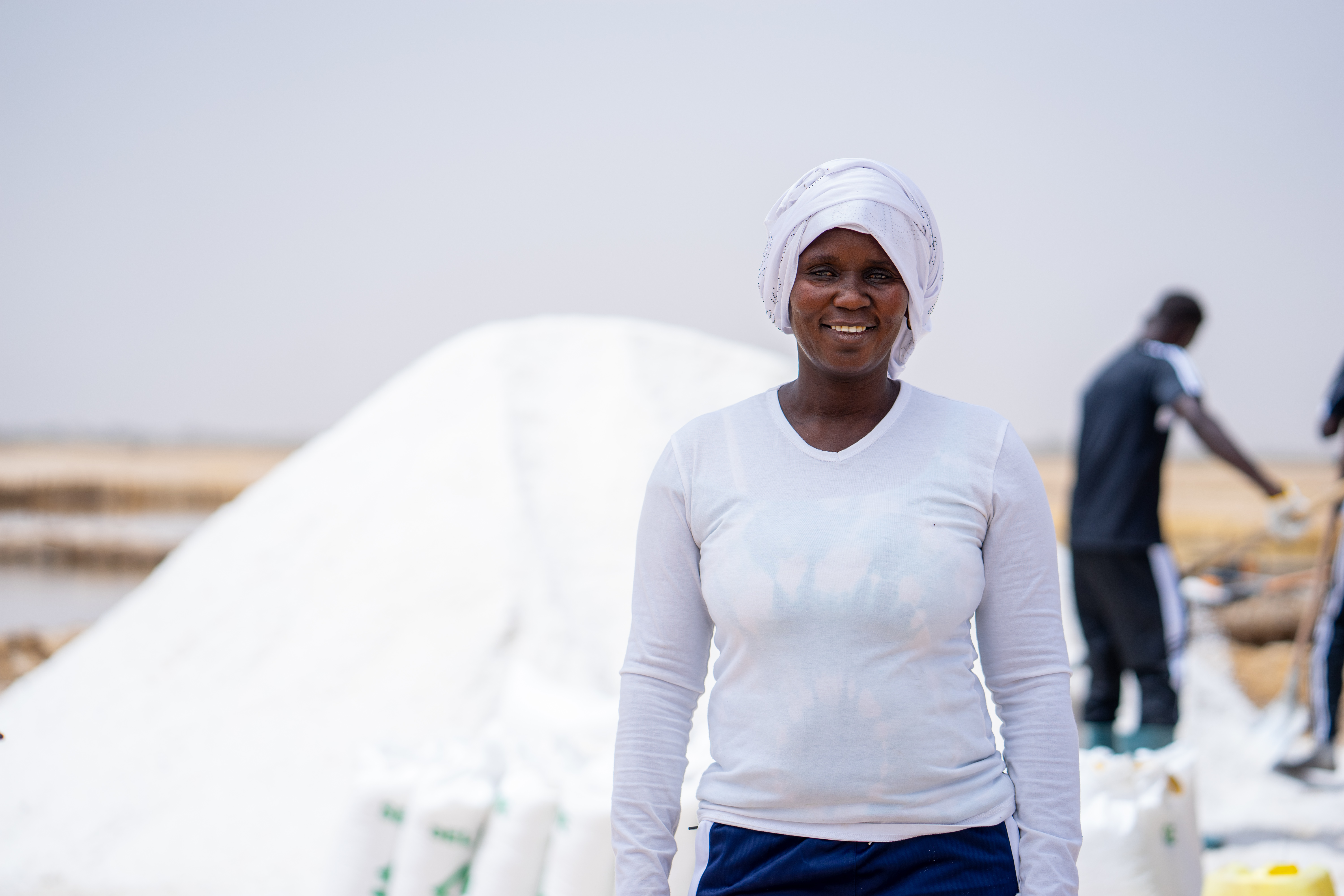
Meet Marie Diouf, a salt producer who resides in Fatick region, one of the largest salt harvesting areas in Senegal. With Nutrition International’s support and training, she has been able to master the art of iodizing salt for household consumption. While small producers are the norm in Fatick region, Marie’s success in a male dominated industry has earned her the nickname “Salt Queen” among locals. “As a producer, I felt great happiness because iodization plays a very important role in preventing many diseases,” she says.
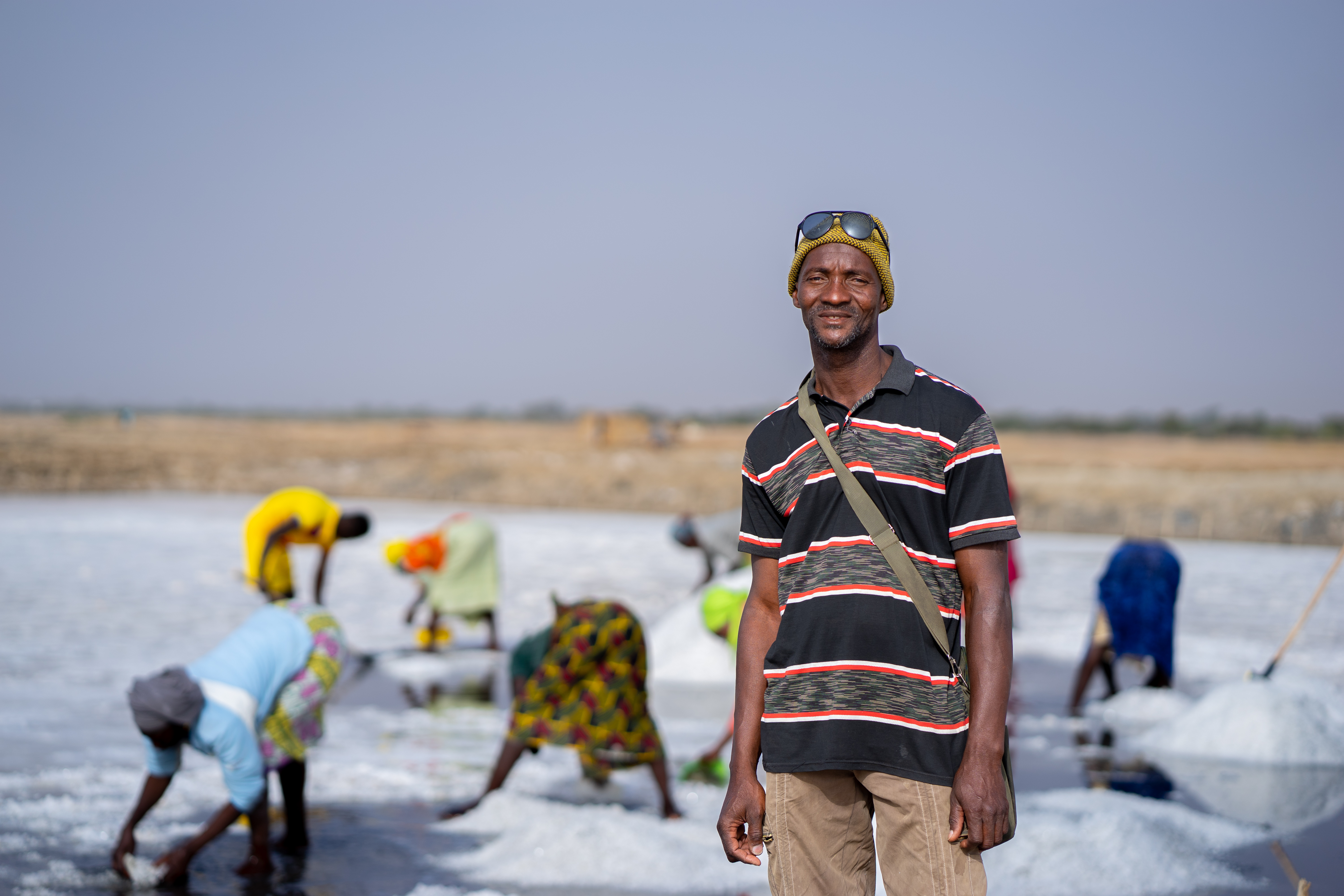
Souleymane Diouf, also hailing from Fatick, has nearly 27 years of production experience. He takes pride in being a small, but impactful part of the solution to mitigate iodine deficiencies across the country. Ever since the inception of the USI program, Souleymane has witnessed substantive change. “It really helped us to improve our daily life. First to have quality salt,” he says. “We have also increased our production and feed our family with the work we do here.”
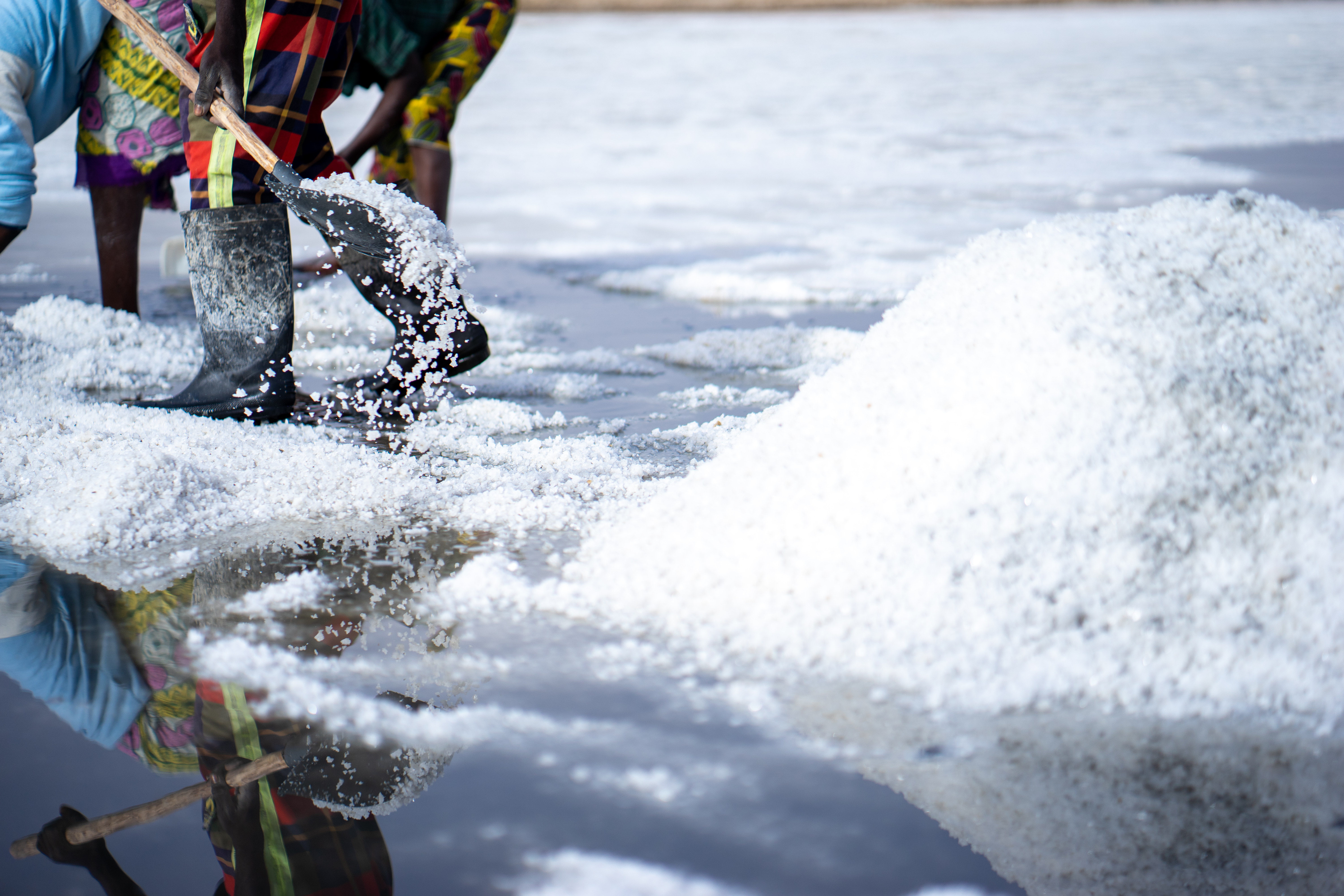
Iodine is essential for the production of thyroid hormones that regulate growth and development. Iodine deficiency is the leading cause of preventable mental impairment globally and can result in lifelong cognitive disability and impairment, goiter and even death. Regular, small amounts are needed due to the body’s inability to store iodine for an extended period, making salt iodization an effective strategy to combat this public health threat.
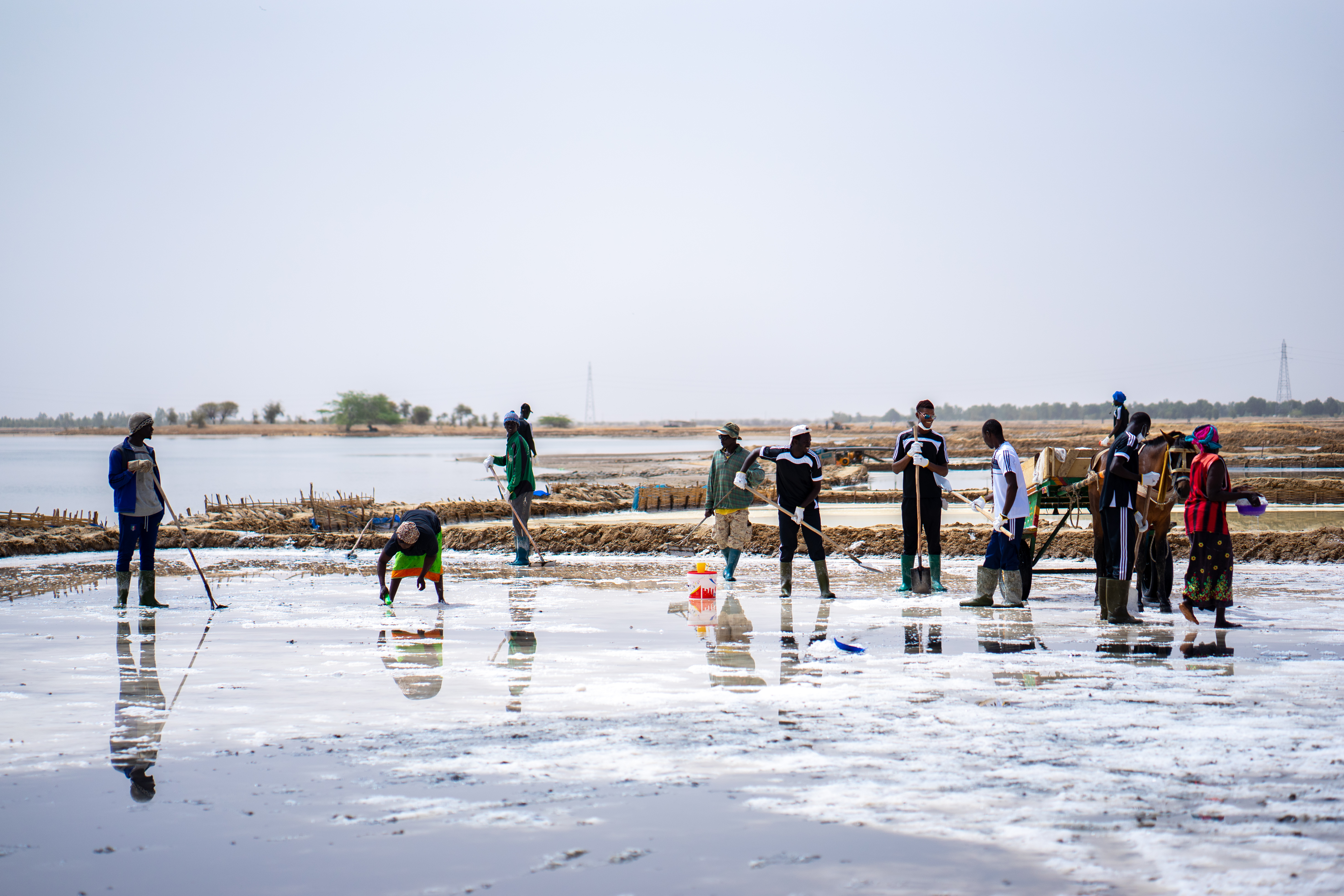
Since 2006, Nutrition International has supported Senegal’s USI mandate. We assist the government in designing and implementing the national iodine deficiency control program and support collaboration with salt producers. Additionally, we equip small- and medium-scale producers with iodization techniques, including access to advanced iodization machines and skills training to be effective.
Recognizing there is strength in unity, we encourage micro- and small- producers to consolidate their efforts. This collaborative approach allows them to pool their resources, improve production techniques and empowers producers to invest in better packaging and marketing strategies, allowing access to larger markets.
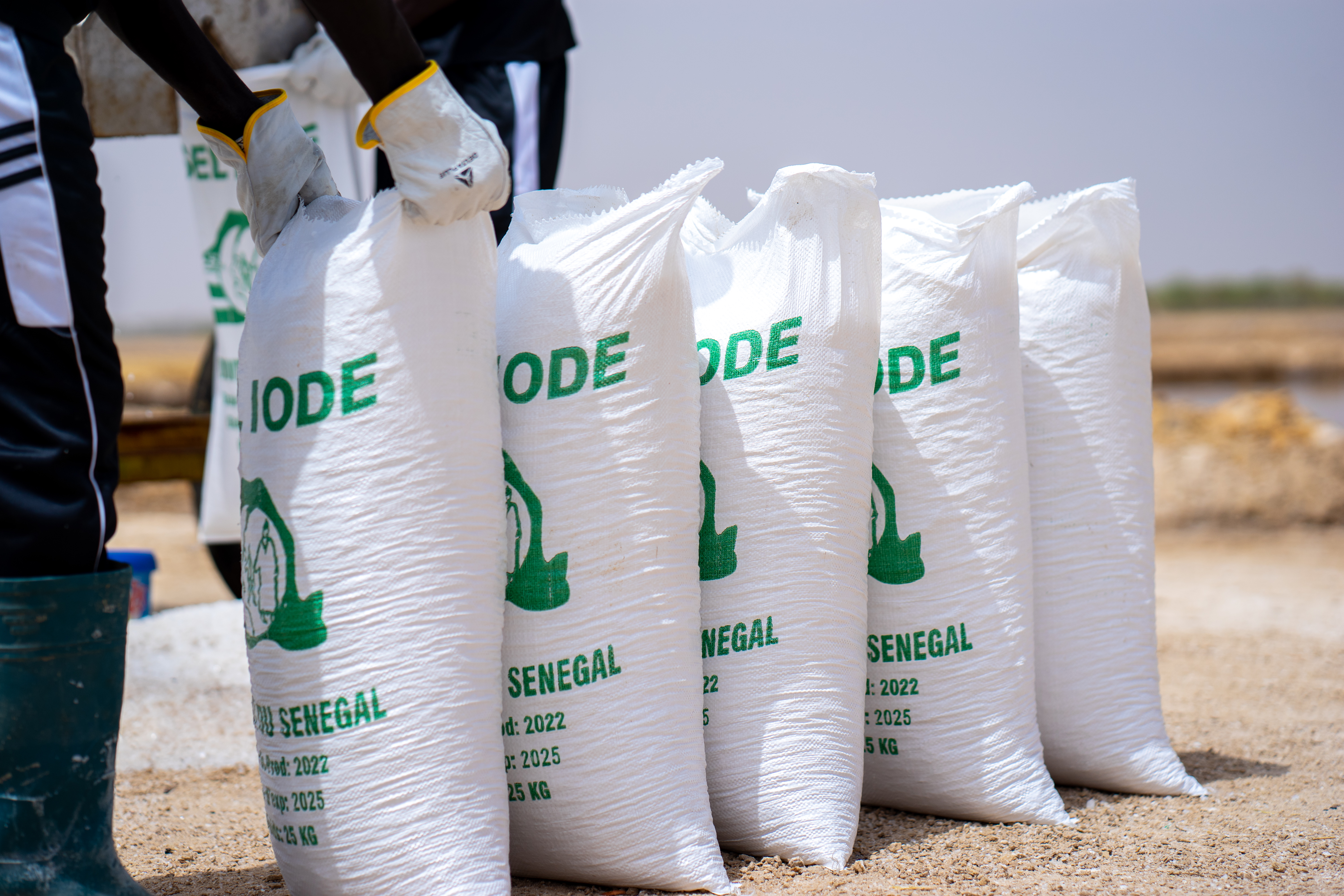
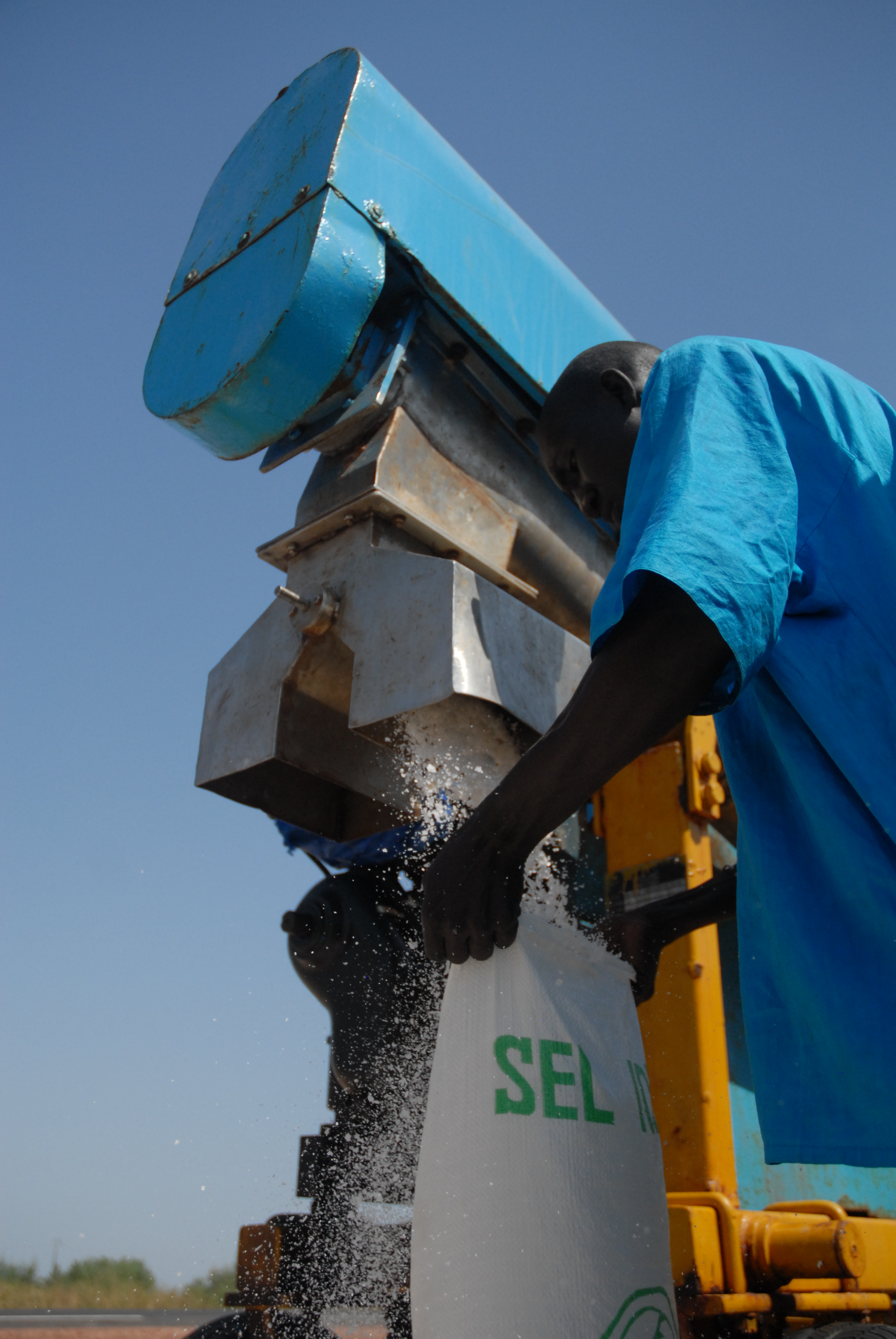
Producing iodized salt demands significant manual effort, a testament to the dedication and skill involved in the process. Nutrition International collaborates with the National Council of Nutrition Development to facilitate access to potassium iodate, the premix needed for precise iodization, by establishing a central purchasing office. Producers like Marie and Souleymane can purchase the premix at a ratio of one kilogram for every 25 tons of salt.
The potassium iodate is diluted with water to ensure uniform iodine distribution, then transferred to iodization machines for quality control and to streamline the labour-intensive process. “From there, the machine completes the iodization process, including the packaging,” explains Marie. After completion, the final product is prepared for distribution, both domestically and for export.
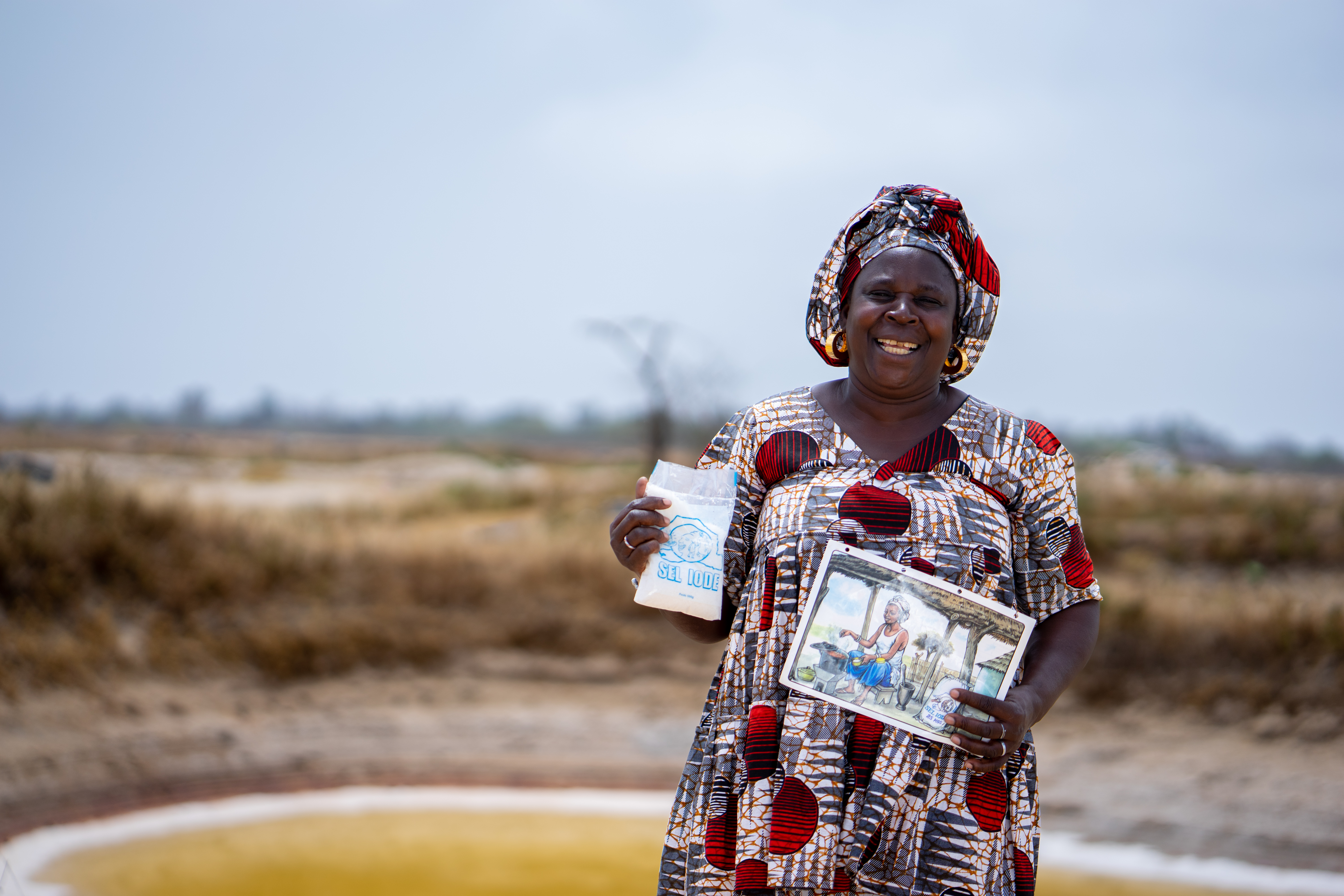
Fatou Dioh is a community liaison residing in Palmarin, a coastal village located in the Fatick region. Community liaisons play a crucial role in sensitizing households about the benefits of iodized salt to encourage consumption for improved health. Every month, Fatou conducts door-to-door visits to educate residents on the importance of nutrition and good health in addition to offering culinary demonstrations. Fatou shared some families are initially hesitant to make the switch due to unfamiliarity with the product and sometimes too busy to talk. But this doesn’t stop her. “I am very happy to do this kind of work,” she says. “I do it with an open heart to prevent and fight against diseases.”
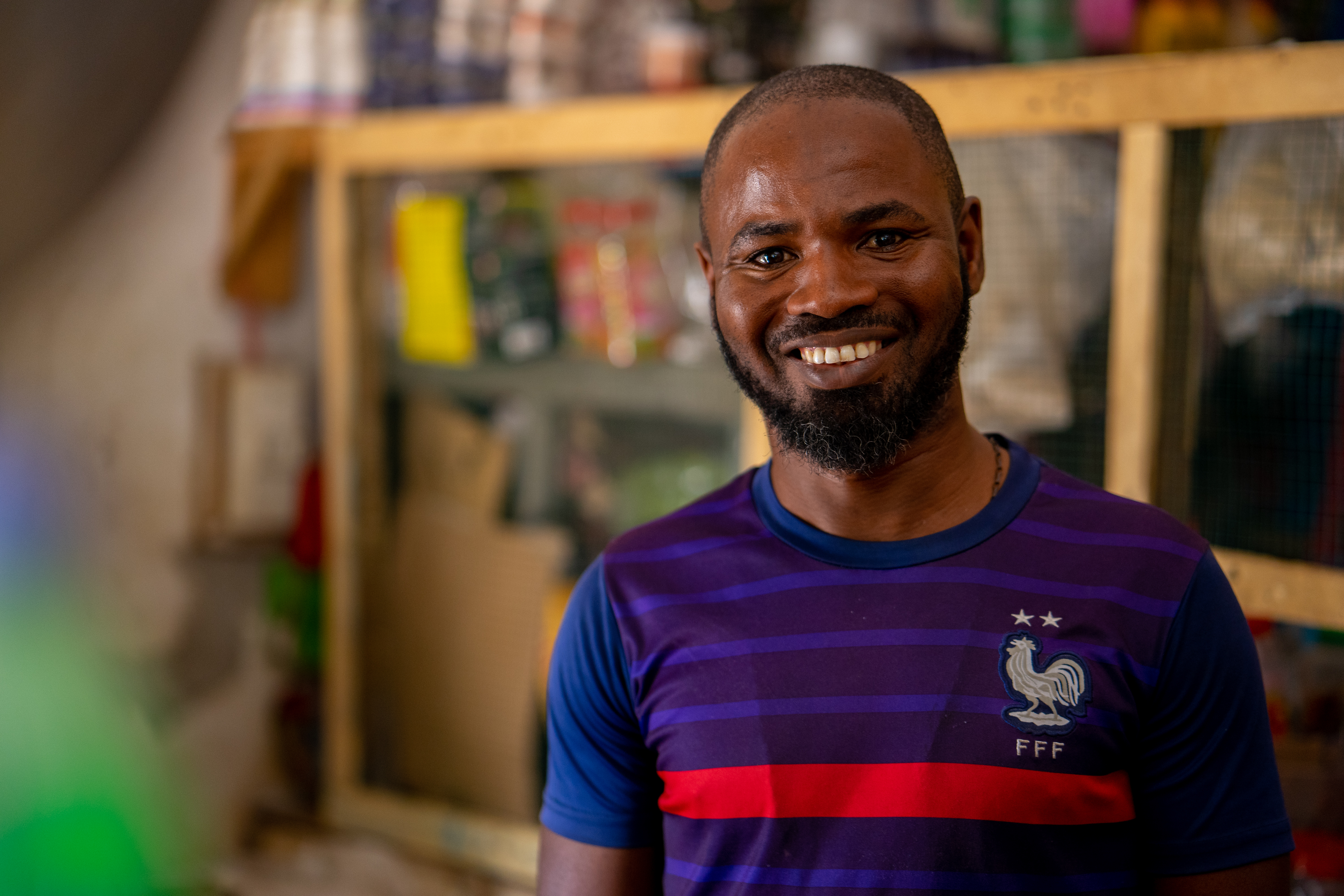
Once iodized salt is produced, it is transported to local shopkeepers like Abdalah Fall, ensuring access for consumption at the community level. Abdalah began to actively stock and market iodized salt in his store in response to the growing interest expressed by several of his customers who had learned about its benefits through community liaison visits.
“They tell me how they feel about it and their testimony allows me to better understand its qualities,” he explains. For the customers that are still unfamiliar with the product, Abdalah educates them on its origins and even shares his own experiences. “It is the only salt I bring home and is the one we incorporate into cooking. I don’t use any other salt,” he says. After having purchased the product and learning of its benefits, Abdalah’s customers now show a clear preference for iodized salt. As a result, it has become his bestselling salt, leading to a noticeable increase in his customer base.

Tenning Seck, a mother of three from Ndjemou, prioritizes the exclusive use of iodized salt in her daily culinary routine. Whether seasoning a hearty stew or sprinkling it over a dish, Tenning’s efforts are to proactively safeguard her family’s health and wellbeing.
“I prefer to buy it,” notes Tenning. “I recommend it to people with whom I have the opportunity to discuss it with because it is a salt that is beneficial to health.” By embracing the use of iodized salt at the family level, communities contribute to a collective effort in eradicating iodine deficiency, fostering healthy households and improving the overall quality of life for future generations.
Nutrition International partners with the government to strengthen the human and health capital of the country by working to prevent iodine deficiency disorders one household at a time. “Nutrition International is a very committed partner,” says Moussa Siby, Deputy Director of Internal Trade. “This commitment enables people to have access to quality food, but also fortified food to be able to prevent diseases.”
Nutrition International will continue to offer technical and financial assistance to the government to strengthen the USI program. Our focus includes bolstering inspection, fostering regional coordination and refining the intervention framework to ensure the quality of iodized salt produced in the country. Learn more about our work to improve people’s health by fortifying staple foods and condiments with key micronutrients.